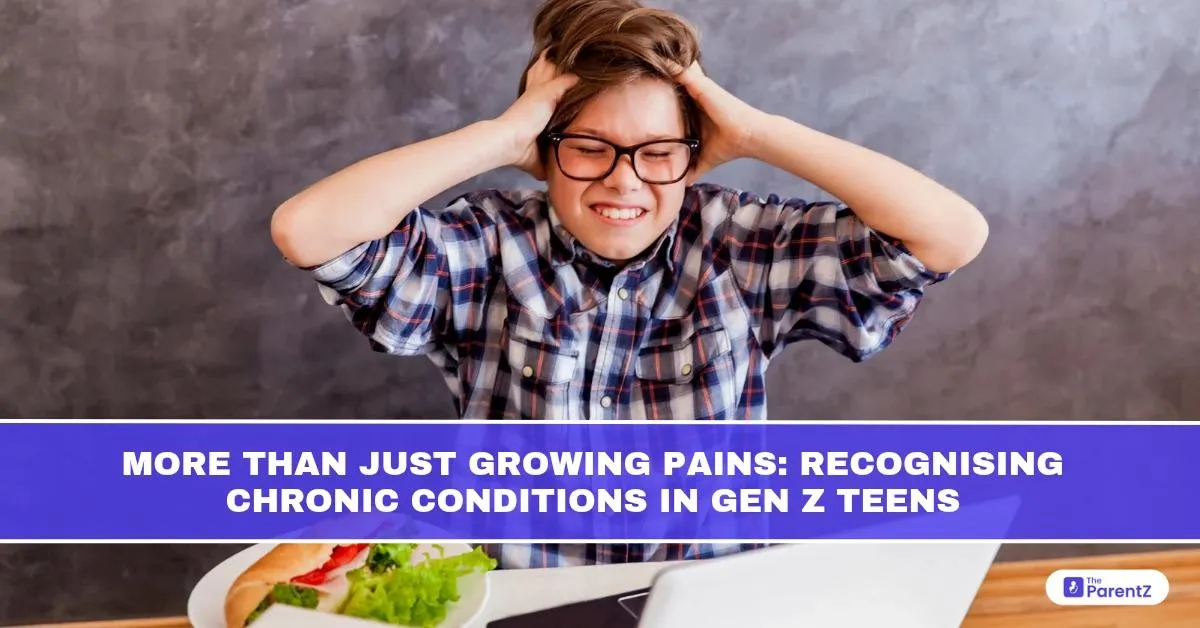For generations, adolescence has been dismissed as a turbulent but temporary phase marked by mood swings, aches, and emotional outbursts. However, for today’s teenagers, members of Generation Z, persistent health complaints may not be “just growing pains,” but signs of chronic conditions requiring medical attention. Recent pediatric research reveals a concerning trend: a rise in long-term illnesses emerging during adolescence, often overlooked or misattributed to typical teenage behavior.
Why Teens Get Overlooked
Teenagers naturally experience fluctuations in mood, energy, and physical comfort as they navigate hormonal changes. Unfortunately, these normal developmental shifts can mask genuine health problems. A study in Pediatrics (2023) found that nearly 30% of adolescents with chronic conditions had symptoms dismissed for over a year before diagnosis, delaying care and compounding complications.
Key reasons include:
- Attribution error: Parents and doctors sometimes mistake fatigue or irritability as laziness or attitude.
- Teen communication barriers: Teens may underreport or hide symptoms out of fear, embarrassment, or normalization of pain.
- Bias in healthcare: Cultural and gender biases can lead to dismissal of complaints, particularly in girls and marginalized teens.
Common Chronic Conditions Emerging in Gen Z
Unlike earlier generations, today’s teens face a heightened risk of certain chronic diseases. These include:
- Juvenile autoimmune diseases (e.g., lupus, juvenile arthritis): Symptoms such as joint pain, rashes, or unexplained fevers may appear episodic at first, mimicking viral infections or injuries.
- Chronic migraines: Unlike occasional headaches, chronic migraines occur more than 15 days a month, impacting school attendance and quality of life.
- Gastrointestinal disorders: Conditions like irritable bowel syndrome (IBS) or inflammatory bowel disease (IBD) often start in the teenage years, presenting with persistent abdominal pain, diarrhea, or weight loss.
- Persistent mental health disorders: Depression, anxiety, and obsessive-compulsive disorder frequently begin in adolescence. Untreated, they can lead to lifelong impairment.
A comprehensive 2024 review in The Journal of Adolescent Health emphasizes that early diagnosis of these conditions can dramatically reduce complications and improve long-term outcomes.
Spotting the Warning Signs
While occasional complaints are normal, patterns of persistent or worsening symptoms should raise red flags. Warning signs include:
- Chronic pain lasting more than a few weeks.
- Extreme fatigue unrelated to sleep or activity.
- Sudden weight changes without explanation.
- Recurrent fever or unexplained rashes.
- Behavioral shifts like withdrawal, aggression, or declining academic performance.
- Ongoing digestive issues such as nausea, vomiting, or blood in stool.
Parents and caregivers should document symptom frequency and patterns to provide clear information to healthcare professionals, facilitating accurate diagnoses.
Psychosomatic vs. Chronic Disease: The Overlap
Psychosomatic symptoms, physical symptoms triggered or worsened by emotional distress, are common in adolescence. However, they can coexist with or mask true chronic disease. For instance, a teen under academic stress might develop stomach pain, but if the pain persists, it warrants evaluation for gastrointestinal conditions like Crohn’s disease or celiac disease.
A 2023 study in Child and Adolescent Mental Health highlights the importance of dual screening: assessing both psychological stressors and physical signs to avoid missing underlying medical issues.
Gender Disparities in Recognition
Research shows that girls, especially in their mid-teens, face disproportionate delays in diagnosis for chronic illnesses like endometriosis or autoimmune disorders. Symptoms like pelvic pain, fatigue, or heavy menstrual bleeding are often normalized or minimized. In contrast, boys are more likely to face stigma when reporting mental health symptoms, delaying treatment for conditions like depression or anxiety.
Addressing these disparities requires educating both families and healthcare providers to listen without bias and consider chronic conditions in all teens.
When to Seek Specialized Care
Primary care doctors are often the first point of contact, but certain signs suggest a need for pediatric subspecialty referral:
- Persistent joint swelling or deformity.
- Blood in stool or persistent vomiting.
- Seizures or sudden neurological changes.
- Severe mood changes accompanied by suicidal thoughts.
- Rapid, unexplained decline in school performance.
Pediatric specialists in rheumatology, neurology, gastroenterology, or psychiatry can provide advanced diagnostics and targeted treatment plans.
Empowering Teens in Their Health Journey
Supporting teens involves more than recognizing symptoms; it means teaching them self-advocacy and health literacy. Steps include:
- Encouraging open discussions about physical and emotional health.
- Teaching them to track symptoms, triggers, and medication effects.
- Ensuring they understand when and how to seek help.
- Involving them in decisions about their care to build independence.
A collaborative approach between families, schools, and healthcare providers ensures early intervention and promotes resilience.
Preventing Long-Term Consequences
Undiagnosed or untreated chronic conditions in teens can lead to significant long-term issues, including:
- Increased risk of disability in adulthood.
- Mental health deterioration due to chronic pain or isolation.
- Missed educational opportunities affecting future socioeconomic status.
A 2024 analysis in The Lancet Child & Adolescent Health reports that teens with well-managed chronic conditions have similar long-term outcomes to their healthy peers, underscoring the power of timely intervention.
Conclusion
Adolescence is a critical window for identifying and managing chronic health conditions that can shape lifelong well-being. By recognizing patterns beyond typical teenage ups and downs, families and healthcare providers can ensure Gen Z teens receive the care they need. Awareness, early diagnosis, and compassionate support can transform chronic illness from a hidden burden into a manageable part of a healthy, fulfilling life.





Be the first one to comment on this story.